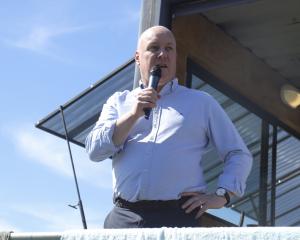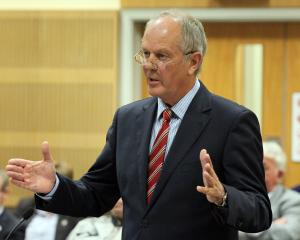
The 62-year-old University of Otago marine carbonate chemist started the Munida Time Series research since 1998, and every two months possible since then, she has journeyed the same 65km, 12-hour transect off the Otago coast to collect and measure changing ocean chemistry parameters.
It is the longest running dataset of its kind in the southern hemisphere.
But after 130 voyages, Dr Currie has decided to retire and admits, "It feels strange".
"This research has been a big part of my life for a long time, and has also resulted in many opportunities for me."
She said the Munida Time Series measured the temperature and salinity of the water, plus parameters that allowed scientists to look at how that part of the ocean was taking up carbon dioxide from the atmosphere.
It also looked at what the consequence of that uptake was for the seawater and the life it supported.
"As the carbon dioxide in the atmosphere is increasing, the ocean is taking up more, and the water is becoming more acidic.
"The measurements we make are meticulous, so we can be sure that changes we see, are due to environmental change and not measurement artefacts."
She said the initial purpose of the researcher was to see how New Zealand waters were responding to climate change.
"Now, after 25 years of careful measurements, we can see how our oceans are changing, and we can compare that with the other sites around the world that are making similar measurements.
"We have seen the oceans become more acidic — it is amazing to see that in my own research lifetime."
Dr Currie hoped that as the world responded to global climate change by reducing the carbon emissions, we would see the changes reflected in our seawater.
"There is a big time lag though, and even if we stop emitting carbon into the atmosphere immediately, the ocean will continue to take it up for decades to come."
She said she was "really grateful" that the programme would continue in its basic form after her retirement, and would change and evolve as new technologies and new ideas were incorporated.
"I will miss the actual work — I really enjoy going to sea, working in the lab, and translating and interpreting those data into results.
"I love talking with like-minded people about the technicalities of the measurements, of the need to share data internationally, and the minutiae of carbon chemistry, and I feel lucky to have had a career that I like so much."
While many scientists find it very difficult to retire and go "cold turkey" on their life’s work, Dr Currie was not one of those people, she said.
"I will go ‘cold turkey’ to some extent, as I want my successor to not have me breathing down his neck, but I will be available to help when needed, and particularly to ensure that the important things stay the same so that the record continues as one coherent dataset."
She also hoped to spend more time helping several initiatives in under-resourced countries gain the capability and capacity to develop their own ocean acidification programmes, as well as do more tramping, mountainbiking, travel, yoga, bread-making, gardening and volunteer work.











